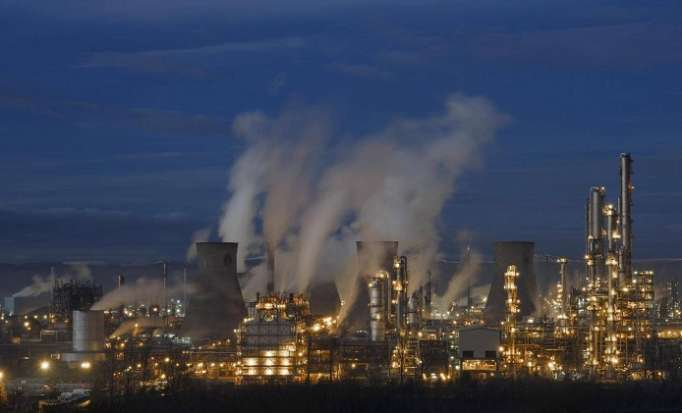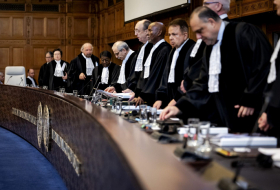Trump officials are minimizing warnings from scientists by arguing they are exaggerated and based on the worst-case scenario. They say the National Climate Assessment (NCA) – an expansive federal government report on the dangers of climate change in the US – considers only the highest possible levels of greenhouse gas emissions.
“If you take the extreme case, you’re right, it’s dire,” Trump’s interior secretary, Ryan Zinke, said on Fox News. “If you take the best case, it’s not much.”
Zinke, who has encouraged fossil fuel production on public lands, compared climate risks to the chance of nuclear war.
“If you look at nuclear war, today we’re going to go home to a bunker and wear a hazardous suit,” he said. “That’s not the case.”
Acting Environmental Protection Agency (EPA) administrator Andrew Wheeler used some of the same phrasing, saying he “wouldn’t be surprised if the Obama administration told the report’s authors to take a look at the worst-case scenario for this report”. The Trump administration, he said, would need to “take a look at the modeling” for the next assessment, which is required by law.
Trump said he did not believe climate change would have economic consequences for the US.
Of Zinke’s comments, Pennsylvania University climate scientist Michael Mann said “there is no truth to [them] whatsoever”. He added: “The report looked at an extremely wide range of scenarios.
“At nearly every juncture, we have actually underestimated the impacts that climate change is having. Sea levels are rising faster, ice is disappearing sooner and the incidence of extreme weather events is increasing faster than our projections from just a few years ago suggested.”
Katharine Hayhoe, a Texas Tech University climate scientist and lead author of the scenarios chapter of an earlier part of the assessment, said the authors considered the range of possibilities outlined by United Nations experts, “from one where carbon emissions continue to grow through the end of the century to one where emissions are already declining and fall below zero before the end of the century.”
Rutgers University climate scientist Robert Kopp, also a lead author on an earlier volume of the report, called the administration’s framing “misguided”.
“In good risk assessment, you want to consider a range of scenarios from the high to the low,” Kopp said.
Awaiting Senate confirmation, Trump nominees have largely acknowledged that climate change is happening but downplayed its impacts, suggesting it is not possible to say how much of it is because of human activities like burning coal and driving cars.
In office, EPA administrator Scott Pruitt considered a military-style “red team, blue team” debate, questioning climate science. An EPA official speaking to conservative state lawmakers in Washington on Friday said those plans were no longer on the table.
Mandy Gunasekara, a high-ranking official in the EPA air office, said the agency’s “understanding of CO2 and greenhouse gases continues to evolve”. After the meeting she said the EPA was still having a “preliminary interim discussion” about climate change science policies.
The NCA, which the administration quietly published the day after the Thanksgiving holiday, looks at how the extent of heat waves, extreme weather and swelling seas will depend on how much greenhouse gas pollution continues to rise.
Even if greenhouse gases stopped rising now, the world would heat up by another 1.1F (0.6C), according to the earlier portion of the report authored by Hayhoe and others. Over the next two decades, temperatures could increase between 0.5F and 1.3F (0.3C and 0.7C).
Global atmospheric carbon dioxide concentrations appear to be the highest they have been in 3m years, and continued carbon growth is likely lead to carbon levels not seen in tens of millions of years.
If humans greatly reduce the greenhouse gases spewing into the atmosphere, continuing warming will still pose wide-ranging dangers.
The Trump cabinet has however sought to advance oil and gas operations, subsidize coal plants and rescind climate protections drafted by Barack Obama’s agencies. Trump also plans to exit the international Paris agreement that aims to cut greenhouse gases.
More about: #Climate-change
















































